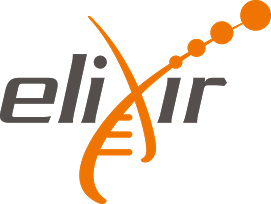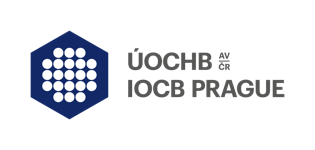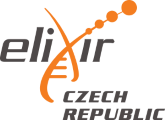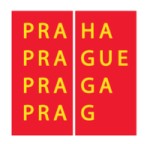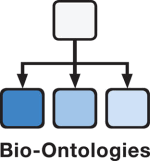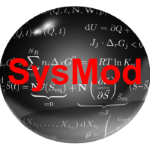Birds of a Feather (BoF) - ISMB/ECCB 2017
BoF A1: The Computational Biology Education (CoBE) COSI BOF
Room: Meeting Hall IA Saturday, July 22 (12:45 pm - 1:45 pm)
Organizers:
Fran Lewitter, Whitehead Institute (This email address is being protected from spambots. You need JavaScript enabled to view it.)
Teresa Attwood, University of Manchester
Lonnie Welch, Ohio University
Presentation Overview:
A major goal of CoBE is to foster a collaborative community in which bioscientists can share bioinformatics education/training resources and experiences. Thus, we invite you to join us for an interactive discussion with the ISCB education committee, GOBLET and others to kickstart this community. Please come with your ideas.
BoF A2: JPI Career Development: "On Leadership and Management"
Room: Meeting Hall IB Saturday, July 22 (12:45 pm - 1:45 pm)
Organizer:
Lucia Peixoto, Washington State University (This email address is being protected from spambots. You need JavaScript enabled to view it.)
Presentation Overview:
In this roundtable discussion, group leaders (established and new) will provide guidance on how to lead your team effectively, manage your people and your time to maximize productivity and quality of life.
Panelists:
Larry Hunter, PhD. Director Computational Bioscience Program. Professor, Department of Pharmacology and Computer Science. University of Colorado.
Janet Kelso, PhD. Group leader of the Minerva Research Group for Bioinformatics at the Max Planck Institute for Evolutionary Anthropology.
Nils Gehlenborg, PhD. Assistant Professor. Department of Biomedical Informatics. Harvard Medical School.
BoF A3: ERC funding schemes
Room: North Hall Saturday, July 22 (12:45 pm - 1:45 pm)
Organizer:
Konstantina Topouridou, European Research Council Executive Agency (This email address is being protected from spambots. You need JavaScript enabled to view it.)
Presentation Overview:
Presenting ERC funding schemes. There will be a panel discussion with ERC grantees.
BoF A4: Promoting gender diversity in Bioinformatics
Room: Terrace 1 Saturday, July 22 (12:45 pm - 1:45 pm)
Organizer:
Malvika Sharan, European Molecular Biology Laboratory, Heidelberg (This email address is being protected from spambots. You need JavaScript enabled to view it.)
Presentation Overview:
One of the major concerns in scientific fields is the lack of gender diversity. In this BoF, using the format of unseminars (http://dx.doi.org/10.1371/journal.pcbi.1003905), I would like to discuss various causes, challenges and possible solutions to combat this problem. Furthermore, I aim to increase awareness among the bioinformatics community on this issue.
BoF A5: Diagnostic relevance of transcriptome sequencing for rare Mendelian diseases
Room: Panorama Saturday, July 22 (12:45 pm - 1:45 pm)
Organizer:
Numrah Fadra, University of Minnesota, Mayo Clinic (This email address is being protected from spambots. You need JavaScript enabled to view it. )
Presentation Overview:
Development of computational techniques using a combination of advanced bioinformatics approaches as well as machine learning models is extremely important for achieving maximum diagnostic value for rare Mendelian diseases. I would like to discuss the approaches used worldwide clinically to address the problem of understanding the genetic foundations of rare genetic disorders.
BoF A6: Future of phosphoproteomics
Room:Meeting Hall V Saturday, July 22 (12:45 pm - 1:45 pm)
Organizer:
Jenny Vuong, Sandeep Kaur
CSIRO, Garvan, UNSW
Presentation Overview:
Advancement in high-throughput mass spectrometry allows the studying of phosphoproteomic time-series events in unprecedented detail, producing data on >10,000 molecular events. This meeting has the goal to discuss the future of handling large-scale proteomics time-series data, in the context of visualization methods/tools, modelling, etc. Come and open your brain!
BoF B1: JPI Career Development: "Becoming a Leader in the Open Data Movement"
Room: Meeting Hall IB Monday, July 24 (12:45 pm - 1:45 pm)
Organizer:
Lucia Peixoto, Washington State University (This email address is being protected from spambots. You need JavaScript enabled to view it.)
Presentation Overview:
ISCB has long been a supporter of open data practices . Young investigators have a unique chance to propagate them. In this roundtable experienced leaders in the open data movement will share their advice on how to advance in your career while simultaneously sharing your work and data openly.
Panelists:
Philip E. Bourne, Director of the Data Science Institute, and Professor in the Department of Biomedical Engineering at the University of Virginia.
Casey Greene, Assistant professor in the Department of Systems Pharmacology and Translational Therapeutics in the Perelman School of Medicine at the University of Pennsylvania
Michael Markie, F100 Research
BoF B2: How to build your scientific network as an early career researcher.
Room: Meeting Hall IV Monday, July 24 (12:45 pm - 1:45 pm)
Organizer:
Farzana Rahman, ISCB Student Council
Dan DeBlasio, ISCB Student Council (This email address is being protected from spambots. You need JavaScript enabled to view it.)
Diane E Kovats, ISCB
Presentation Overview:
A session dedicated to addressing career-related needs and questions of young researchers in the area of computational biology. We will host inspiring talks and opinions from experts and lively discussions with the audience on career guidance, tips and skills. The ISCB Student Council and ISCB's Industry Advisory Council welcomes all curious minds to the event.
BoF B3: Cytoscape Community Meeting: Latest updates and Roadmap
Room: Terrace 1 Monday, July 24 (12:45 pm - 1:45 pm)
Organizer:
Barry Demchak
University of California at San Diego
Presentation Overview:
The Cytoscape Consortium will be hosting an open public meeting for the community of users, app developers and scripters to learn about the latest features and to engage with core developers and roadmap for the future. If you are new to Cytoscape or a long-time power user, you are welcome to join.
BoF B4: What can the Galaxy Project do for you?
Room: Meeting Hall V Monday, July 24 (12:45 pm - 1:45 pm)
Organizer:
Martin Čech
Galaxy Team, Penn State University
Presentation Overview:
Our activities reach far and wide and as such can be a bit overwhelming. We oversee deployments range in size from single user instances to large public servers serving tens of thousands of researchers. Thousands of tools are available and hundreds of tool developers make tools accessible to a bigger audience. Our setups can achieve unprecedented levels of reproducibility and we can connect to various clusters.
Share your challenges and let's discuss what the Galaxy Project can do for you.
Join us for a Minorities and Women in Science event - details here.
BoF B5: Equity, Diversity, and Inclusion in ISCB and in Bioinformatics?
Room: Meeting Hall IA Monday, July 24 (12:45 pm - 1:45 pm)
Organizer:
Kieran O’Neill, Aurora Blucher, Monica Munoz-Torres, Malvika Sharan
Presentation Overview:
This BoF will be a round table discussion of Equity, Diversity and Inclusion, with a focus on listening and ensuring that the voices and experiences of attendees are heard. The challenges, barriers, and possible solutions discussed will be taken forward by the ISCB EDI Task Force.
Join us for a Minorities and Women in Science event - details here.
BoF B6: Future of Hi-C Data?
Room: Panorama Monday, July 24 (12:45 pm - 1:45 pm)
Organizer:
Benedetta Frida Baldi, Sean O’Donoghue
The Garvan Institute of Medical Research UNSW, CSIRO
Presentation Overview:
We are just now getting know the 3D arrangement of chromosomes thanks to Hi-C data. How should we use this knowledge and where should to push it? Come to discuss what Hi-C can and cannot do, how we can improve it and how we should look at it.





